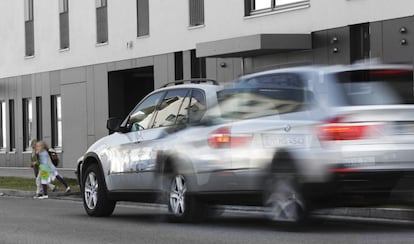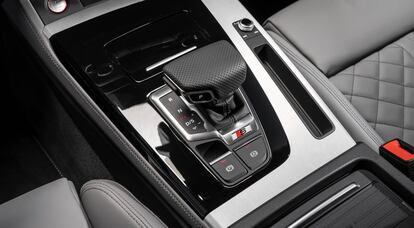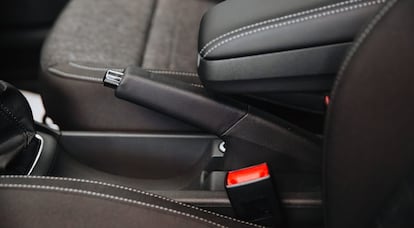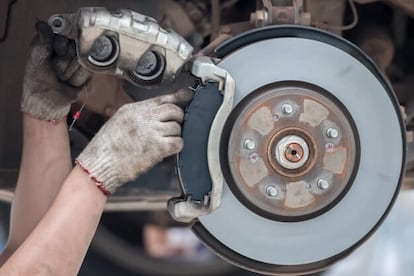What you should (and should not) do if your car’s brakes fail while driving
One of the worst situations you can find behind the wheel is your brakes not working. And doing the wrong thing can have fatal consequences

When you’re behind the wheel, there can be various situations that need you to act fast. Perhaps the most difficult of these is what to do when the brakes fail. Although it’s a very unusual situation, fatal accidents do (sometimes) occur for this reason. Most of the time they happen because drivers don’t know how to react safely or in time. It’s also true that, in some cases, there’s no time or space to react quickly.
What to do if the car’s brakes don’t work
First of all, and although it’s easier said than done, keep calm. And, above all, stay in control of the vehicle. It’s essential to stop safely.
Obviously, you have to stop accelerating as soon as you notice there’s a fault with the brakes. It doesn’t hurt to try to warn other road users: turn on your hazard (emergency) lights and even honk the horn. Don’t turn off the engine, because the power steering will stop working, and the steering wheel will become much harder to use.
Pump the brake pedal repeatedly to try to increase the pressure in the circuit, in case the fault is due to a pump failure. If this doesn’t work, try to slow the vehicle down using the engine brake, that is, by moving down through the gears.
If the vehicle is a manual, it’s easy. If it’s an automatic, nearly all models have a sequential mode. With this, you have to lower the gears gradually to reduce the speed as soon as possible.

If the vehicle is manual, in addition to moving down the gears, you should exert a slight but continuous tension on the handbrake. Be very careful, because if you do it abruptly and drive at high speed, you can lock the rear wheels, lose control of the vehicle, and make the situation worse.
As soon as you notice that your brakes have failed, you should find a way to get off the road or pull over to the right shoulder so as not to put other drivers at risk. If you’re driving in the city, before you lose control of the vehicle and have an accident, try to scrape along a fence or wall, the curb of the sidewalk, or any other roadside element to slow the vehicle down or even stop it.

How do you know if the brakes might fail?
There are certain clues to look for before this active safety system fails completely. If the brake feels harder than normal and you have to use more force on it, or the vehicle brakes less effectively than before, it may be due to a failure in the brake booster. That usually occurs after a long period of not being driven, excessive heat, or a failure in the brake pump.
Check the brake fluid from time to time, between two and three months, to make sure it is at the correct level. Also, check that the pads are not worn down and that the disks are in good condition.

If you notice the brake pedal is too soft when you step on it, the brake fluid level may have dropped under the minimum safe level, or there may be some air in the circuit.
If the car turns on itself when braking, that is, it goes sideways, you should take it to the workshop to check the entire system and find the possible problem. If not, it can lead to something more serious. This behavior can also be due to a breakdown in one of the shock absorbers, but it doesn’t hurt to find out.
In all these cases, and at the slightest symptom, the best thing to do is to bring the car to a workshop to get it checked out.
Sign up for our weekly newsletter to get more English-language news coverage from EL PAÍS USA Edition
Tu suscripción se está usando en otro dispositivo
¿Quieres añadir otro usuario a tu suscripción?
Si continúas leyendo en este dispositivo, no se podrá leer en el otro.
FlechaTu suscripción se está usando en otro dispositivo y solo puedes acceder a EL PAÍS desde un dispositivo a la vez.
Si quieres compartir tu cuenta, cambia tu suscripción a la modalidad Premium, así podrás añadir otro usuario. Cada uno accederá con su propia cuenta de email, lo que os permitirá personalizar vuestra experiencia en EL PAÍS.
¿Tienes una suscripción de empresa? Accede aquí para contratar más cuentas.
En el caso de no saber quién está usando tu cuenta, te recomendamos cambiar tu contraseña aquí.
Si decides continuar compartiendo tu cuenta, este mensaje se mostrará en tu dispositivo y en el de la otra persona que está usando tu cuenta de forma indefinida, afectando a tu experiencia de lectura. Puedes consultar aquí los términos y condiciones de la suscripción digital.








































